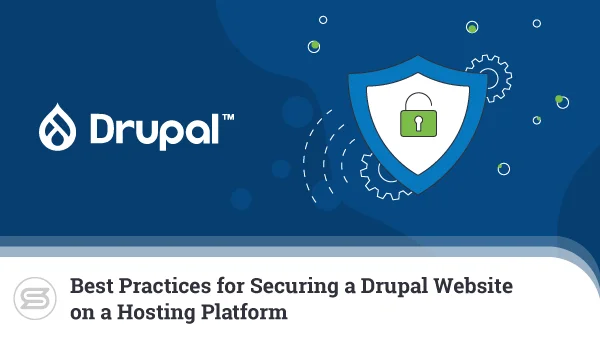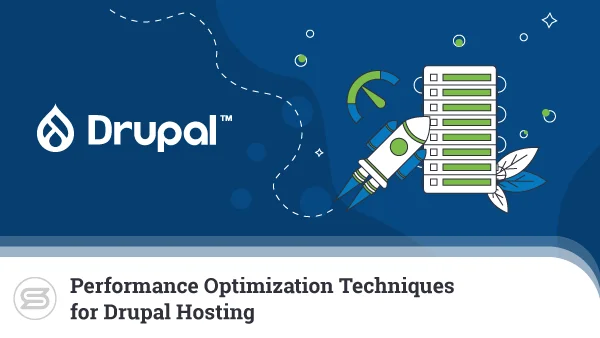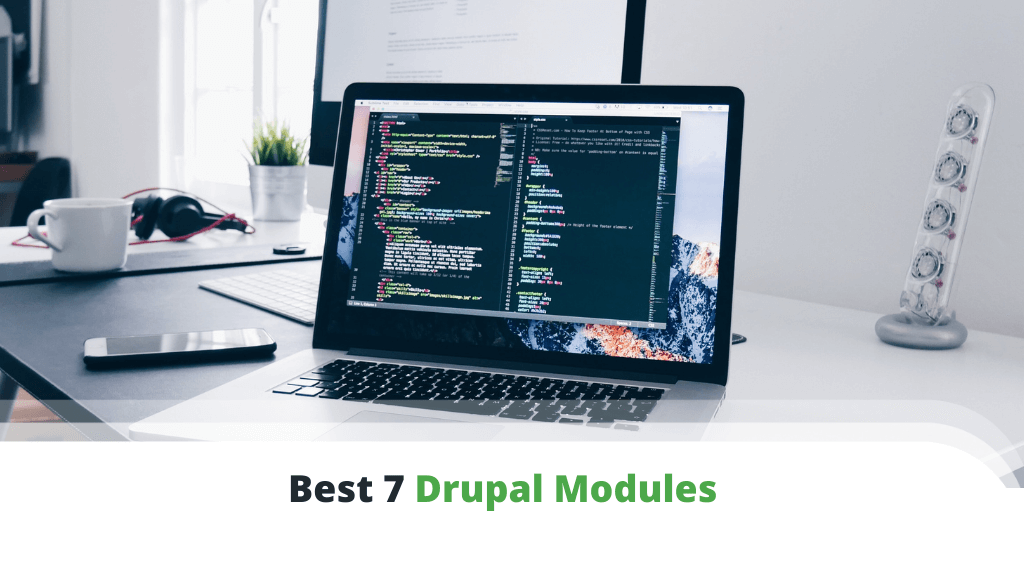If you’re looking for an SEO checklist for Drupal, you’ve come to the right place. Despite having only a fraction of the market share WordPress does, Drupal still powers millions of websites. It remains a solid choice for content-heavy websites that need to handle high traffic loads.
What Is Drupal?
Drupal is an open-source Content Management System (CMS) available for free use. This web application helps users easily build and manage websites handling dynamic content. Drupal has a modular architecture, meaning you can add extra features relatively easily.
A big part of Drupal’s appeal is its ability to handle large amounts of various content types, including text and media, not to mention its immense scalability. The platform requires an environment that includes a web server, PHP, and database solution, to run properly.
Why Is SEO Important for Drupal?
Search Engine Optimization (SEO), simply put, is what helps keep your site visible to those using search engines like Google (so pretty much anyone online). The better your SEO – the more highly your content ranks in search results. This kind of visibility will guarantee you have another source of bringing traffic to your Drupal site.
Because it is organic, search traffic is one of the most desired means for attracting site visitors. It is the lifeblood of all websites, and Drupal sites are no exception.
How to Improve Your Drupal SEO?
By design, Drupal is SEO-friendly. However, there are many more things site owners can do to improve on it.
Choose a Reliable Hosting Provider
As a cornerstone of your website, the hosting provider you choose can affect many things. Most of these are somehow related to SEO as well — site speed, reliability, security, and more.
Price is often a key factor of consideration that many look towards when choosing a host. Where possible, try to balance cost with essential features that may affect your site performance.
Some of these include:
- Security features
- Backup and recovery tools
- Host reputation
Install an SEO-friendly Theme
Drupal allows users to customize their site design through the use of themes. These pre-built templates are widely available and can be dropped into place quickly. However, not all Drupal themes are ideally SEO optimized.
The theme you choose will affect some SEO elements. For example, Google today follows a mobile-first initiative. Thus, sites that are not optimized for mobile devices may suffer ranking penalties or lose out to sites that are.
SEO-friendly Drupal themes should be:
- Lightweight
- Responsive
- Easily Navigable
- Cleanly coded
Integrate Google Analytics
Since Google Analytics (GA) ties search query data with your website, it can be an invaluable SEO work tool. Part of the information it provides includes how visitors are using your site.
Most people would think that a visit should be to the home page, followed by navigation activities. In reality, user behavior varies greatly, but your GA dashboard can show you the exact paths your visitors take on your website. Information like this can help you adjust your content flow to direct visitors towards the pages you want them to land.
Drupal Performance Tips
With site speed having a growing effect on SEO, you must fine-tune Drupal as best you can. The platform caters to the mass market, but some previous development knowledge greatly helps when customizing it. Still, you can always squeeze a few milliseconds of performance bonus out of it if you try.
Some ways to improve Drupal include:
- Using a Content Distribution Network (CDN)
- Removing unused modules
- Combining CSS and JavaScript files
- Enabling page caching
- Database optimization
Drupal also releases regular updates, some of which may include performance and security improvements. Keep the application and its themes/modules up to date at all times.
Sitemap and robots.txt
Sitemaps are files containing information about the structure of your website. Search engine robots always look for this file as it helps them rank your content properly. Although they will still crawl your web pages without a sitemap present, having one will likely mean faster search ranking updates.
Robot.txt, on the other hand, lets search engines know which of your pages to index. Not all of your site sections need to be indexed, though. By utilizing the robots.txt file, you can control the exact pages you want to be crawled.
You have to create robots.txt manually, but there are many ways you can automate sitemaps. A common workaround is using Drupal’s default sitemap module.
On-page optimization
There are many things you can improve on specific pages to help them rank better. This process is known as on-page optimization. Your objective is to ensure your page content matches the user intent when making a specific query.
Content aiming to rank well must be able to demonstrate Expertise, Authoritativeness, Trustworthiness. These are the fundamental tenets of on-page SEO.
Aside from that, other factors may also play a role, including:
- Keywords
- Meta tags
- Image optimization
Image Optimization
Images play a key role in many aspects of your Drupal site SEO. They are a major contributing factor to site speed because of their size. Image files are much larger than text, and poorly optimized images can slow down page loading speeds. As websites are moving toward bigger and high-quality visuals, image optimization is becoming more of a necessity.
Aside from that, the image format also plays a role. As an example of this, PNG files are often a poor choice when optimization is concerned. Although the image quality is good, they are often larger than other file formats.
Some of the methods to create SEO-friendly images are:
- Apply image compression
- Include alt-text
- Use unique filenames
Product descriptions
If you’re running Drupal as the base for an ecommerce site, product descriptions also factor into SEO. These need to be written with search engines in mind, not just your potential customers.
Avoid favoring marketing speak and instead look towards writing product descriptions that are clear and informative. Make sure your descriptions are unique as well since search engines often frown upon content duplicate content.
HTTPS encryption
Search engines today prioritize websites equipped with Secure Sockets Layer (SSL) certificates. These certificates encrypt data passing between your hosting server and the visitor’s browser. The SSL ensures that no personal or financial information is out in the open, adding the HTTPS prefix to your key pages.
You can easily get a free SSL certificate with most web hosting providers. Most will provide a free SSL from Let’s Encrypt, a nonprofit foundation dedicated to better internet security. If you run an ecommerce site or handle lots of user data – you may want to consider a private SSL certificate instead.
Drupal SEO Plugins
Pathauto
If you struggle with creating the right URLs for your content, consider using Pathauto. It helps you generate address path aliases based on various content types. This URL type helps with the “SEO-friendly” element of web page addresses instead of using random numbers.
Real-time SEO for Drupal
Despite its popularity, Yoast unfortunately no longer has an official Drupal release. For hardcore Yoast fans, you can still use a similar version of it, called Real-time SEO for Drupal. It does many of the same checks, including content length, headings and subheadings, meta tags, and more.
Link Checker
This lightweight module helps Drupal site owners find broken links. If your content has grown massively, it can be hard to keep an eye on everything. That’s where you can put Link Checker to work. It can scan and evaluate your entire site and notify you which links lead to nowhere.
ScalaHosting and Drupal
ScalaHosting supports a wide range of plans suitable for hosting Drupal sites. These range from shared to Virtual Private Server (VPS) plans. While online projects can work on either, to begin with, the Managed Cloud Hosting VPS plans are remarkably more attractive.
ScalaHosting’s Managed Cloud VPS for Drupal offers excellent performance thanks to industry-leading hardware coupled with innovative technologies. Most importantly, thanks to the self-developed SPanel control panel, it comes at a fraction of the price many other hosts can offer.
Conclusion
While many new users shrug Drupal off in favor of WordPress, it remains a strong choice for a plethora of webmasters. The SEO principles aren’t unique to Drupal, so many of them can be applied cross-platform. It’s an essential part of owning a successful site, so embark on your SEO journey today.
FAQ
Q: Is Drupal good for SEO?
A: Yes, Drupal is quite an SEO-friendly application. By nature, the CMS includes a fair number of built-in SEO tools. Additionally, the modular design of this platform enables quick expansion. This feature allows you to include other SEO utilities more easily.
Q: What is Drupal best used for?
A: Drupal is best at managing large amounts of variable content types. Examples of this would be news sites, online stores, photo galleries, and more. On a more individual basis – many users create blogs with Drupal.
Q: Is learning SEO on Drupal worth it?
A: Yes, SEO is vital to help you gain organic web traffic on the Drupal platform, or any other for that matter. Many principles can be applied universally and should become deep-rooted habits for any website owner.
What is a VPS – Everything you need to know!



